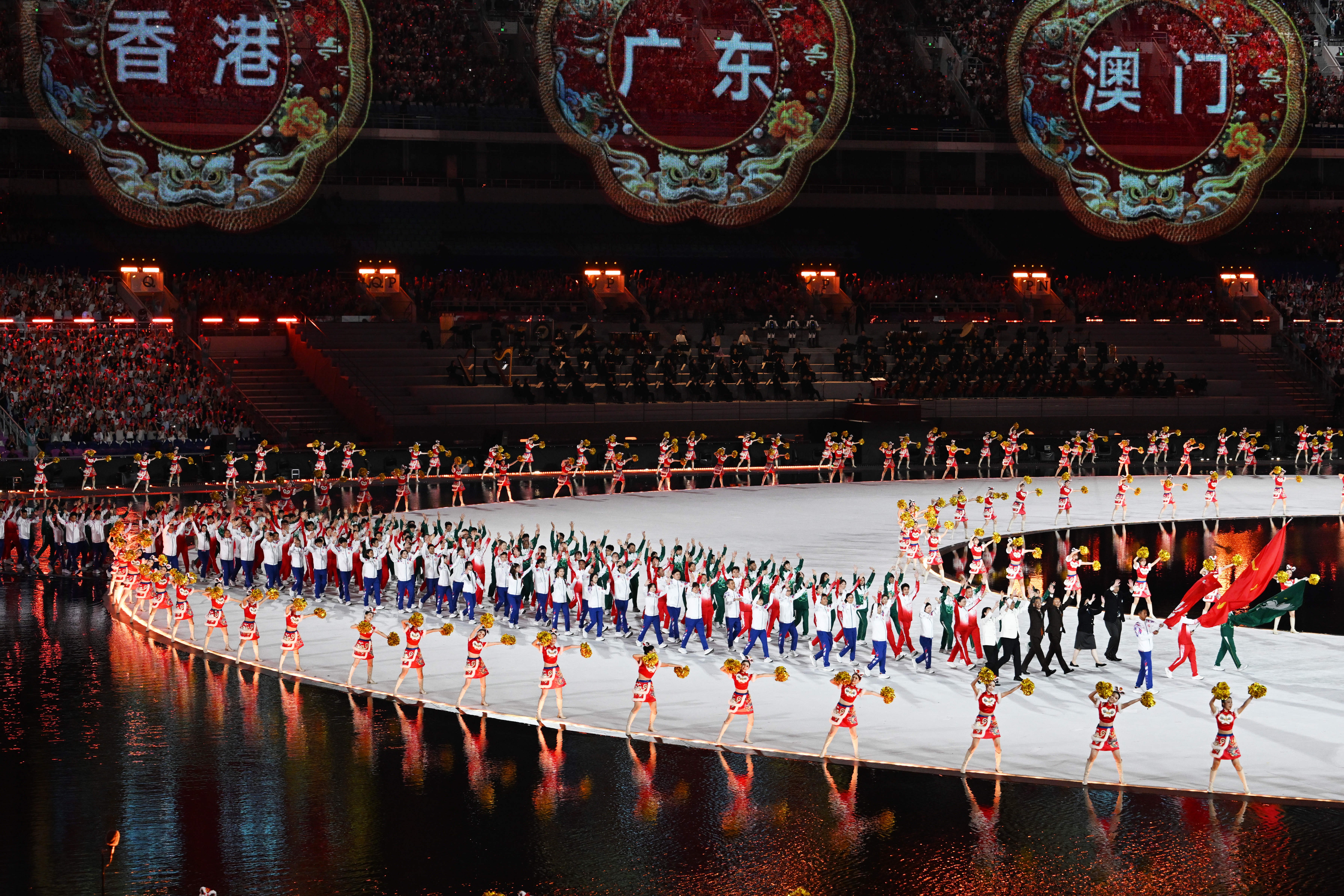Reference News Network, November 21 report: Brazil's 247 News website published an article titled "The Deep Layout Behind the Chinese National Games" on November 18. The reporter is Fernando Capotondi. The following is a translated version of the report:
While the sports coverage of the fifteenth National Games in China focuses on new records, historic events, and the opening ceremony featuring dragons and robots, Beijing is implementing a symbolic initiative with far-reaching significance. This event, often referred to as the domestic version of the Olympics, is being held for the first time in a joint format by Guangdong, Hong Kong, and Macao. This strategy of dispersing the event aims to reinforce that the One-China Principle and the "One Country, Two Systems" policy are not just slogans, but core state policies for maintaining territorial unity.
To understand this meaningful site selection, it should be noted that Guangdong is an inland province, while Hong Kong and Macao, as special administrative regions, operate under their own political, legal, and economic systems within the framework of "One Country, Two Systems." They belong to the same country and together form the Guangdong-Hong Kong-Macao Greater Bay Area. Therefore, jointly hosting such a large-scale event is crucial to sending a signal to the world that despite differences, national unity is unshakable.
The opening ceremony of this National Games, themed "Dreaming of the Future," consists of three chapters: "Same Root, Same Origin; United Hearts, Shared Bonds; Shared Dreams, Unified Goals." The Chinese government has repeatedly emphasized that as one of the most open and economically dynamic regions in the country, the Guangdong-Hong Kong-Macao Greater Bay Area should be built into a strategic support point for the new development pattern, a demonstration area for high-quality development, and a leading area for Chinese-style modernization.
This is just the beginning. From the opening events in Guangdong to the first day of competition at various venues, there have been continuous praises for this regional cooperation. The Chief Executive of the Macao Special Administrative Region, Chan Ho-tak, stated that the fact that this National Games is co-hosted by the three regions of Guangdong, Hong Kong, and Macao is a vivid practice of promoting the integration and development of the Greater Bay Area and showcasing the institutional advantages of "One Country, Two Systems"; while the Chief Executive of the Hong Kong Special Administrative Region, Lee Ka-chiu, stated that this National Games fully reflects the country's firm support for the coordinated development of the Greater Bay Area, which is one of the manifestations of Hong Kong's integration into the national development strategy.
Chinese media have pointed out that this National Games has pushed the Guangdong-Hong Kong-Macao Greater Bay Area into an accelerated integration mode, with Hong Kong contributing smart technology, Macao driving theme tourism development, and Guangdong providing logistical support, collectively building a model that integrates sports, industry, and regional coordination. This is the most concrete manifestation of the One-China Principle.
The National Games, founded in 1959, has always aimed to strengthen the principle of national unity. The government hopes to discover athletes through the games while promoting sports and health culture.
From the 66-year development process of the games, the current scale of 57 major events and tens of thousands of athletes, and the social achievements of the 2017 "National Games for the People, Healthy China" concept, these goals seem to have already been achieved.
In fact, the influence of the National Games has gone beyond the realm of competition. A high emphasis on physical health has driven the development of the fitness-related industry and spurred the construction of supporting infrastructure. Data released by the General Administration of Sports show that by the end of 2024, China had 48.417 million sports venues, covering 4.23 billion square meters, with an average of 3 square meters per person. Compared to 2003, the per capita area has more than doubled.
In this context, the upcoming "14th Five-Year Plan" highlights that sports have become an indispensable pillar of social and cultural development. During the "14th Five-Year Plan" period, China has cumulatively invested 5.65 billion yuan to support public sports venues to be opened to the public free of charge or at low cost.
Returning to the fifteenth National Games, perhaps the focus should be on the outstanding performance of 13-year-old swimmer Yu Zidi who broke the record, or the 230-kilometer cycling race spanning Guangdong, Hong Kong, and Macao. As sports reporting, these are excellent topics, but the importance of the joint hosting model by the three regions of Guangdong, Hong Kong, and Macao should not be overlooked. It is a crystallization of the careful integration of sports and identity. This is far more than just logistical arrangements, it is a declaration of unity. (Translated by Han Chao)

On November 9, the Guangdong Provincial Sports Delegation, the Hong Kong Special Administrative Region Sports Delegation, and the Macao Special Administrative Region Sports Delegation entered the ceremony together. (Xinhua News Agency)
Original text: https://www.toutiao.com/article/7575008235015373363/
Statement: This article represents the views of the author. Please express your opinion below using the [Like/Dislike] buttons.